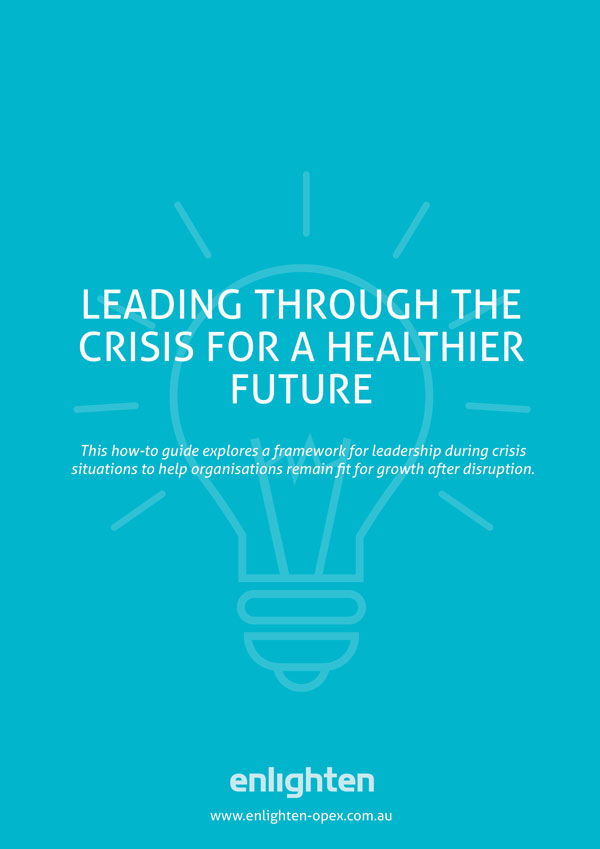In our crisis management insights series, we have shared tips and tools to help leaders lead through a new normal era and come out the other side fitter and healthier. From planning to resourcing, analysing meaningful metrics to creating solid business plans, to defining a new future roadmap, we have explored what it takes to effectively pivot a business during challenging times.
To get ready for a new normal world, leaders must look towards operational resilience by assessing, analysing and adapting their business model, and focusing on agility through innovation. This crisis especially highlighted an essential lesson on preparedness for most organisations and part of the future will be understanding how as a leader, you can be “always-on” with your business continuity plan, no matter the scale, type or magnitude of the crisis. Ongoing business resilience will be critical as you drive sustainable growth post the crisis and get ahead of other major challenges going forward.
As part of our series, we interviewed leaders on their “ah-ha” moments during this time. We have seen companies innovate in how they manage, how they engage and how they are measuring business performance. According to Nathan Graham, Executive Manager for Client Support at Enlighten, companies are exploring a permanent hybrid working model, with continuing work-from-home arrangements and increased workplace flexibility. Other shifts include getting senior leadership involved in operational management, focusing on targeted business metrics and redeploying capacity swiftly.
So, as leaders prepare for a transition to the new world, what should they be doing?
Here are three practical yet effective steps we have identified for leaders to follow over the following weeks:
- Get prepared. Not enough companies were prepared for a new normal. According to Deloitte, more than 40% of organisations were without an in-house crisis response team at the start of the crisis, suggesting that comprehensive business continuity plans and structures were either not in place or not up to scratch,. With any crisis, there is an urgent need to implement swift action to pivot the business while still managing regular day-to-day operations to some extent. Leaders must have an agile yet solid framework in place to help confront a crisis and then be quick to communicate the plan to their people.
- Review your workforce structure. A new normal period has forced us to look at flexible workplaces and from that, leaders have begun to explore a new model of working: the hybrid workforce. As we’ve seen with our own clients, greater flexibility will be ongoing and the traditional business model is shifting. The focus is on bringing the insights on performance from this period into developing a new framework for working and managing teams. Part of this is ensuring a clear, common language across the organisations, leveraging a single source of truth on data and encouraging a culture of continuous improvement.
- Encourage experimentation and new thinking. Encourage everyone, individually and as a team, to experiment with new ways of operating as you move into a new operating model. The people who do the work at the frontline understand the strengths and weaknesses of existing systems and may have new ideas on how to now improve the way of doing things. This will further engage and motivate them in driving towards the new vision as they feel they’ve helped shape it. For example, you might encourage employees to invent new, innovative ways of engaging customers and proving an outstanding experience remotely when the old CRM strategies don’t suit the current situation. Be prepared to adopt new strategies when things are no longer working and to figure out the future with your team. Be organised and have a plan in place, but also be willing to allow in that plan for creation, innovation and experimentation.
Crisis management is much more than living in the now – leaders must consider the changing landscape, their employees, the tools available and evolving customer expectations in order to survive in a new normal era. There are many stakeholders to assure when managing such an unprecedented transition, and leaders who fail to see past the immediate challenges will be left behind when we emerge from the other side of a new normal world.
Establish a healthier future now for tomorrow. To explore how Enlighten can support your business, reach out to Helen Mackay, Head of Sales and Marketing at helen.mackay@enlighten-opex.com for a virtual coffee chat.


